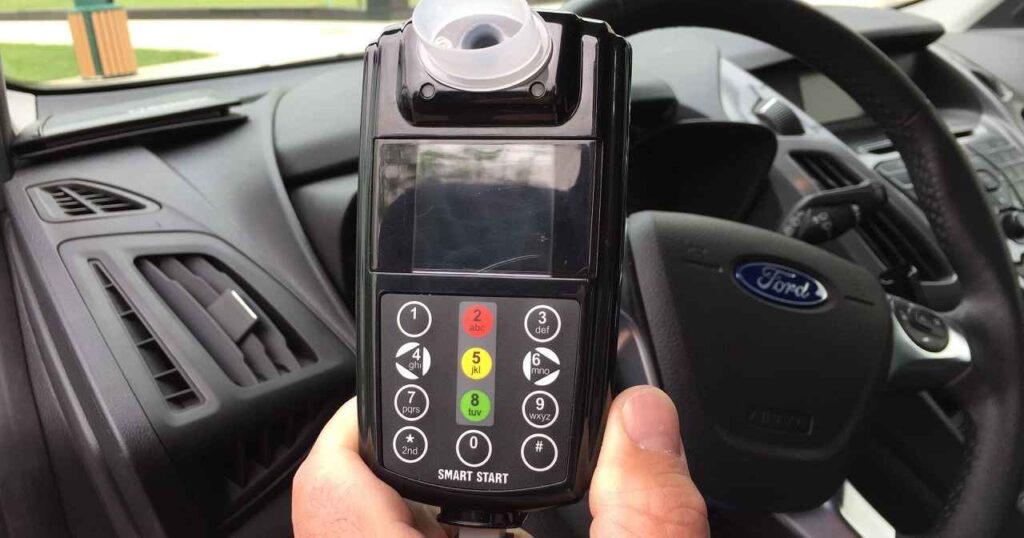Alcohol interlock programs have become a key element in promoting road safety by preventing individuals who have previously committed drink-driving offences from operating a vehicle while impaired. These programs are often mandated by law as part of the sentencing for drunk-driving convictions. This article seeks to address many of the common questions surrounding the functionality and requirements of alcohol interlock programs.
What is an Alcohol Interlock Program?
An alcohol interlock program is a system designed to prevent individuals from starting their vehicle if they have a measurable amount of alcohol in their system. The cornerstone of this program is the alcohol ignition interlock, a breathalyser device connected to a vehicle’s ignition system. Participants are required to provide a breath sample before the vehicle can be started, and at random times during a trip, as part of rolling re-tests.
How Does an Alcohol Ignition Interlock Work?
The alcohol ignition interlock is an in-car breathalyser that requires the driver to blow into the device to measure their breath alcohol concentration (BrAC). If the BrAC is above a preset limit—typically set to zero or nearly zero—the vehicle’s ignition system will be locked, preventing the car from starting. These devices are critical in ensuring that drivers adhere to the conditions of their program and remain sober behind the wheel.
Who Needs to Participate in the Program?
Participation in an alcohol interlock program is typically mandated for individuals convicted of drink-driving offences. Requirements vary by jurisdiction, but usually include a range of offences, from first-time offenders to those with multiple convictions. Participation can be a condition for the restoration of a driver’s licence or as a part of a court sentencing.
Where Can You Get an Interlock Device Installed?
Interlock devices must be installed by trained professionals. Individuals required to participate in the program should seek out certified providers, like Smart Start Interlocks, which offer an installation service by qualified technicians. It’s important to ensure the installer is approved by the authorities governing the alcohol interlock program in your area.
What is the Duration of an Alcohol Interlock Program?
The duration of an alcohol interlock program is generally determined by legislation and individual circumstances, often depending on the severity of the offence and the participant’s compliance. Typically, programs last for at least 12 months, but can be longer for repeat offenders or those who have committed serious offences.
What Happens If You Fail an Interlock Device Breath Test?
If a participant fails a breath test by registering a BrAC above the allowed limit, the vehicle will not start. Additionally, the failed test is logged by the device and reported to the relevant authorities. Frequent failures or attempts to tamper with the device can result in penalties or extensions to the program.
Can an Interlock Device Shut Off Your Vehicle While Driving?
No, alcohol interlock devices cannot shut off a vehicle while it is being driven. However, if a participant fails a rolling re-test—the periodic tests required during operation of the vehicle—the device will record the event and set off an alarm until the ignition is turned off.
Are Alcohol Interlock Devices Difficult to Use?
Modern alcohol interlock devices are designed to be user-friendly. Following the installation service, technicians typically provide training to the participant on how to properly use the device. If any issues arise, providers offer customer support to assist with troubleshooting.
What Maintenance is Required for an Interlock Device?
Interlock devices require regular maintenance and calibration to ensure they are operating correctly. Participants are responsible for scheduling service visits, often on a monthly basis, with their provider to maintain compliance.
Can an Alcohol Interlock Device Drain Your Car Battery?
While alcohol interlock devices do draw power from the vehicle’s battery, they are designed to minimise energy consumption. It is rare for a properly installed device to drain a healthy car battery. However, if the vehicle is not started for an extended period, like any electronic device, it could potentially impact the battery.
Can Other People Drive a Vehicle with an Interlock Device?
Yes, other licensed individuals can drive a vehicle equipped with an interlock device, but they must also comply with the breath test requirements. It is important for the program participant to understand that they are responsible for all readings recorded by their device, regardless of who is driving.
Are Alcohol Interlock Programs Effective?
Studies have shown that alcohol interlock programs are effective in reducing recidivism rates among drink-driving offenders. By preventing individuals from driving while intoxicated, these programs not only enforce sobriety for the driver but also enhance public safety on the roads.
Concluding Thoughts
Alcohol interlock programs play a vital role in the prevention of drink-driving incidents by ensuring that convicted offenders can only operate their vehicle while sober. The sophistication and effectiveness of devices offered by services such as Smart Start Interlocks have made managing and complying with these programs more streamlined and reliable for participants. With proper installation, maintenance, and responsible use, alcohol ignition interlock remain a proactive solution to a persistent road safety issue.

